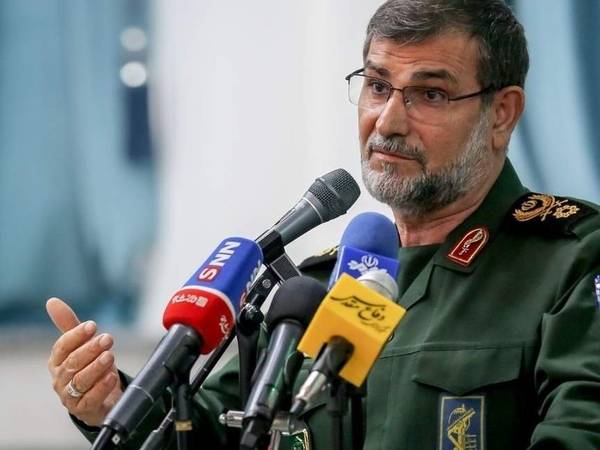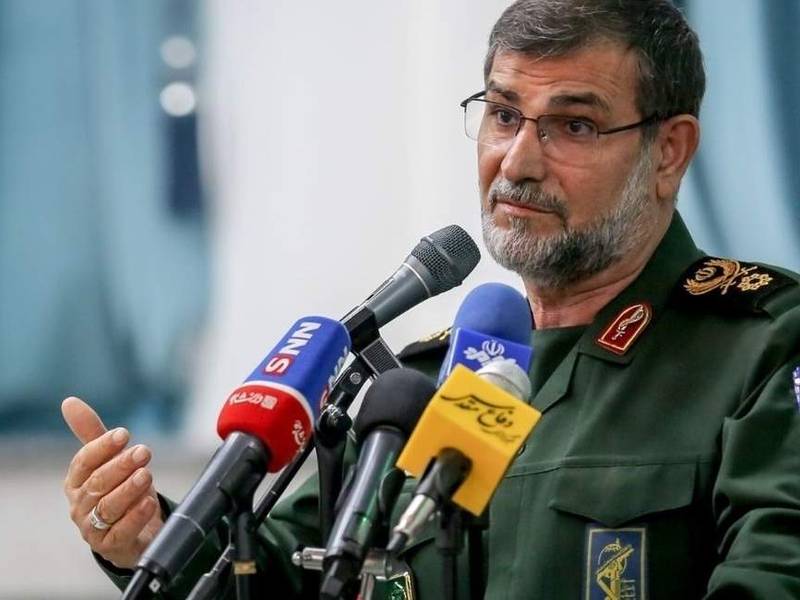Iran can close the Strait of Hormuz in the Persian Gulf if ordered by senior officials, the commander of the Revolutionary Guards (IRGC) navy warned after US President Donald Trump announced plans to cut Iran’s oil exports to zero.
"We have the capability to close the Strait of Hormuz," Alireza Tangsiri was quoted as saying by Iranian media on Sunday in defiance against Trump's threats.
Tangsiri added that the decision rests with "high-ranking officials, and the IRGC navy will act in accordance with orders."
On Tuesday, Trump signed a directive aiming to reduce Iran's oil exports to zero in a bid to pressure Tehran back to the nuclear negotiating table, and reimpose stringent economic sanctions.
He said that Iran would face "catastrophic" consequences if it does not negotiate a new nuclear agreement.
However, Tangsiri dismissed Trump's directive, saying the US is incapable of reducing Iran’s oil exports to zero.
"They cannot achieve their goals. We have stood against them for 46 years, and they cannot break the Muslims. Look at Gaza—Muslims, with empty hands, have resisted and defended themselves against the ruthless, child-killing, and bloodthirsty regime for over 15 months. So, they certainly cannot break a bigger country with sanctions. The more they have sanctioned us, the greater achievements we have made," he said.
The strait, a key route for global oil shipments, has been at the center of past tensions. Iran has repeatedly threatened to block it, including in 2018 after the US withdrew from the nuclear deal.
Tangsiri made a similar threat in April last year, saying Israel's presence in the United Arab Emirates was viewed as a threat by Tehran and that Iran could close the Strait of Hormuz if deemed necessary.
Western nations have stationed naval forces in the region to prevent any disruption to the vital waterway, which handles about 20% of global oil trade.
In 2023, the US imported approximately 0.5 million barrels per day of crude oil and condensate from Persian Gulf nations through the Strait of Hormuz, accounting for about 8% of its total crude and condensate imports and 2% of its overall petroleum liquids consumption, according to the US Energy Information Administration (EIA).
Trump withdrew from the 2015 JCPOA nuclear deal with Iran during his first term, imposing tough economic sanctions that have triggered a prolonged financial crisis in the country.
In spite of this, under the Biden administration, oil sales have continued to grow.

